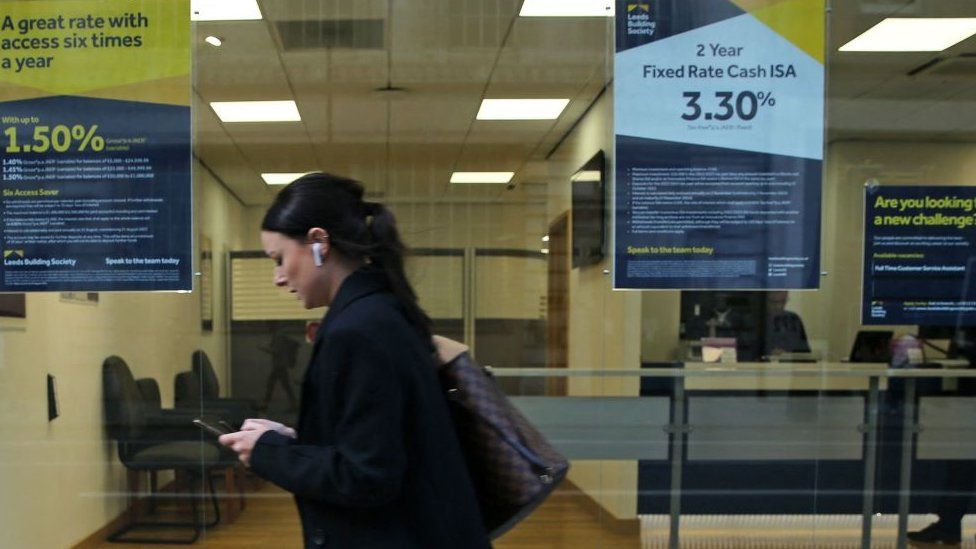ARTICLE AD BOX
 Image source, Getty Images
Image source, Getty Images
Since the announcement of the government's mini-budget in September, financial markets have been in turmoil, with investors concerned about how tax cuts would be paid for.
Some pension funds risked collapse, and the Bank of England had to step in to lower that risk.
Meanwhile, five-year mortgage rates hit 12-year highs. Mortgage rates had been rising for months, but increased sharply after the mini-budget.
BBC personal finance correspondent Kevin Peachey answers your questions about pensions and mortgages.
What does this mean for my workplace pension?
Heather Wing asks whether, following the deadline from the Bank of England, her occupational pension is safe.
It is correct that the Bank of England has told pension funds that its emergency bond-buying operation will end this week.
That is targeted at a specific section of the pensions sector. Importantly, the warning does not extend to the pension savers themselves.
Even if you have a so-called defined benefit pension, that will be safe, experts say.
If one of these pension funds did get into trouble, then the employer is legally obliged to pump money into the scheme. In the unlikely event that doing so puts the employer out of business then there is a safety net called the Pension Protection Fund.
How are different pensions affected?
Andy Atkinson, from Rugby, asks whether he should be worried about his defined contribution and defined benefit pensions.
First things first, some definitions.
A defined contribution pension is when you build up a pot of pension savings which is invested. On retirement, you have various options.
One of those is to buy an annuity with all, or part, of that pot. Recent events mean annuity deals are actually better than they have been for some time.
A defined benefit pension is a bit different. It sees the amount you receive in retirement depend on how long you have been in the scheme and your salary during that time.
Some of the funds which control these pensions have been at the centre of the turbulence of recent days.
However, pensions consultants stress that, whatever type of pension you have, it is safe.
Will the state pension keep up with the cost of living?
Don Brown wants to know: "Will the state pension keep up with the cost of living?"
There is some upheaval in the pensions sector at the moment, but that will not affect your state pension.
The government has already committed to honouring the triple-lock. So, your state pension next April will rise in line with the highest of inflation, wages, or 2.5%.
Inflation - the annual rate of rising prices - will clearly be the highest, at about 10% or so. We will get that number next week, when the next set of official inflation figures is published.
Of course, pensioners are facing higher prices now, but the backstop of the triple lock always lags behind the current situation - for better or worse.
Image source, Getty Images
What help is there for first-time buyers?
Moving on to mortgages, Callum, from Leeds, is saving for a first home and wants to know what help is available.
He says: "I make just under £1,500 a month after tax. National Insurance and Income Tax reductions will only save me £16 a month, meanwhile prices of everything are skyrocketing."
Clearly as you watch mortgages getting more expensive, it may feel like buying a home is increasingly difficult.
Ministers will point to the help offered in the mini-budget, which means first-time buyers in England and Northern Ireland will only pay stamp duty on properties above £425,000, rather than £300,000, as well as discounts above that.
Savings rates are improving, and house price rises look set to stall or reverse, according to experts.
But, as is always the case, the security of your job and income, and how much you earn, will be key factors when judging what home you can afford.
What should I do if I can't pay my mortgage?
Ethan Jones from Wolverhampton asks: "What's the worst that can happen if I can't afford to pay my mortgage for say, three consecutive months?"
You are technically defined as being in arrears after missing two or more months of payments.
The universal advice from debt charities here is to avoid putting your head in the sand.
If you are struggling, or know you will struggle, to make your monthly repayments, then you should contact your lender. Charities can also offer free, independent guidance.
Your lender is obliged to treat you fairly and consider any request to pay, for example, just part of the payment for a short period.
It is not allowed to repossess your home unless all reasonable attempts to resolve the situation have failed.
Are my savings safe?
Kam Wan asks: "Are my savings safe in a bank or building society?"
This is a question that was asked a lot during the financial crisis over a decade ago, which was a very different scenario.
The answer is yes. The Financial Services Compensation Scheme completely protects the first £85,000 saved per person, per financial institution if a bank or building society goes bust.
If you have more savings than that, experts suggest putting it into different accounts with different providers.
And, just to stress, there is no suggestion of a threat to the future of any banks or building societies right now.

 2 years ago
52
2 years ago
52








 English (US) ·
English (US) ·